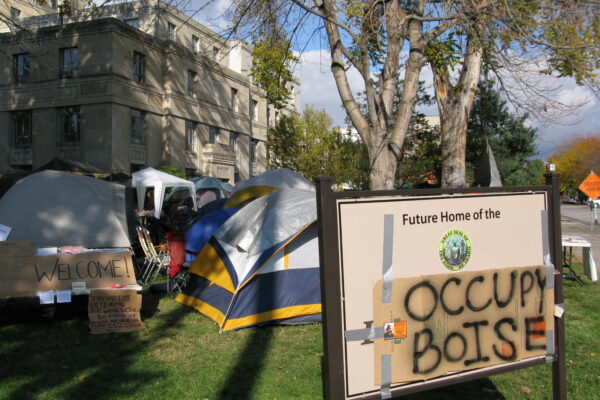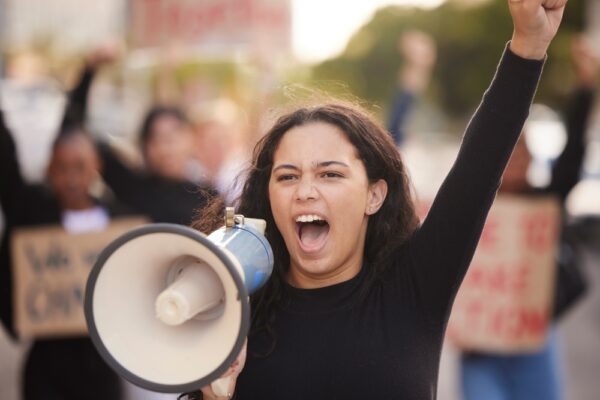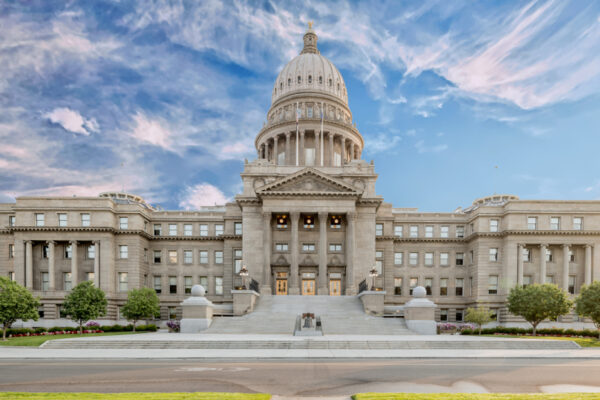Action partially restores constitutional rights to Idahoans
Boise, ID—Today the Idaho legislature passed two concurrent resolutions rejecting the temporary rules promulgated by the Idaho Department of Administration to regulate usage of the Capitol steps and the and Capitol Mall. Senate Concurrent Resolution (SCR) 118, and 119 rejected some of the most unconstitutional parts of these rules, which is a victory for the ACLU, Occupy Boise, and all Idahoans opposed to excess government interference with all Americans’ freedom.
“The legislature acted on what we’ve been saying all along,” said Monica Hopkins, ACLU of Idaho Executive Director. “These rules were fundamentally flawed, curtailed protected constitutional rights, and put our most cherished principle of liberty at risk by forcing people away from using public space at the Capitol and Mall area.”
SCR 118, relating to use of the exterior of state property in the Capital Mall and other State facilities, rejected Section 201 of IDAPA 38.04.06, which would have placed time and duration restrictions on Events or Exhibits. The rule proposed to limit the duration of speech or activity to 7 consecutive days and ban events and exhibits completely for a minimum of one day if organizers chose to continue beyond the seven consecutive days. Additionally, an Event or Exhibit would have had to follow strict time restrictions as described in Section 302 which lists the times of facility availability. Portions of Section 302 were also rejected.
SCR 119, rules governing use of Idaho State Capitol Exterior, the legislature rejected Section 201, most of 302 and 313 of IDAPA 38.04.08. Section 201 placed time and duration restrictions, 302 time restrictions and 313 dealt with sound level and amplification on the Jefferson steps. Combined all of these rules would have had a detrimental impact to the rights and liberties Idahoans have exercised year after year the on the Capitol steps on a multitude of issues.
While rejection of such rules restore some rights to Idahoans, unfortunately, the legislature did not go far enough, and Idahoans will still have to fight in court and elsewhere until the State of Idaho again cherishes the right to speak, assemble, and protest, including in the existing lawsuit over these rules.
Regrettably, the Department of Administration has claimed that it will be trying once again to stifle the voices of Idahoans by re-writing the rules. The ACLU will be among those watching vigilantly to prevent what happened the first time: unconstitutional restrictions on fundamental liberties.
“The people of this state want to be heard at their statehouse—that’s what this country was built on. Sure, that may be inconvenient for those in power and it may even mean sometimes that large crowds, from many viewpoints, gather on the Capitol Mall to make their concerns visible. But that’s what those places are for,” said ACLU Legal Director Ritchie Eppink. “The State should be doing all it can to encourage that, not making restrictions on it that the legislature and the courts have to spend their time fixing.”
Idahoans should take this legislative action as partial victory in restoring their rights at the Capitol and Capital mall. On a parallel track the ACLU of Idaho awaits the decision in the case of Watters v. Otter, which also deals with the rules and the original lawsuit filed by Occupy Boise over speech rights on state property. The case is before Judge B. Lynn Winmill in the U.S. District Court for the District of Idaho.
###



